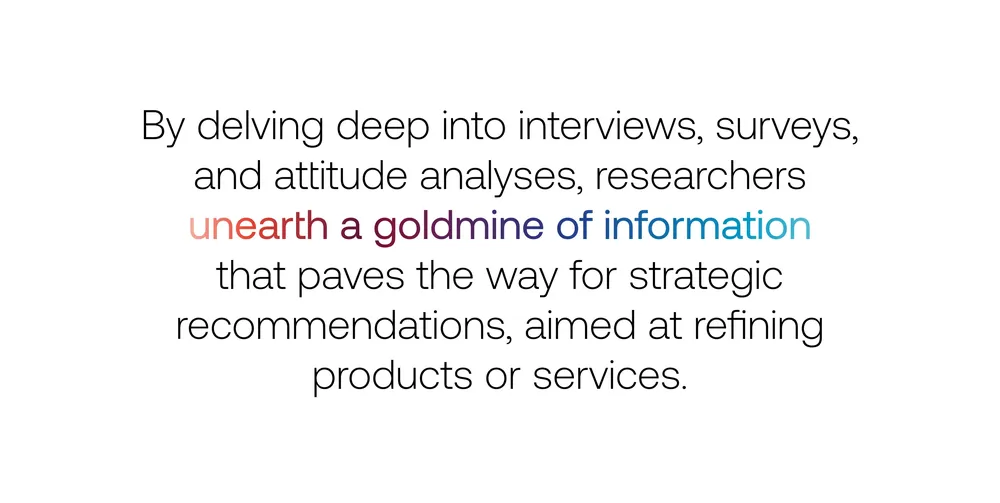
Understanding customers is the key to success in today’s competitive landscape. User experience (UX) research plays a pivotal role in unraveling the intricacies of how potential buyers interact with your products and services. How to gain profound insights into users' behaviors, beliefs, and experiences? This is when ethnographic research comes into play.
UX research helps to unlock the secrets of successful product design. Today, we embark on a journey to explore the world of ethnographic research, its benefits, and real-life examples of applications.
To put it simply, ethnographic research centers around gaining a deep understanding of users' behaviors in their natural environments.
By observing and participating in the daily activities of the studied group, researchers gain unparalleled insights into the impact of the environment on people’s interactions with products or services and the significance of social connections.
Ethnographic research goes beyond understanding users' thoughts, actions, and emotions. It helps to identify the factors that shape their experiences, such as biases, lack of understanding, strong emotions, or previous experiences.
In the dynamic world of business, tapping into the insights provided by ethnographic research can be a game-changer. This valuable approach makes it possible not only to identify genuine customer concerns but also to suggest actionable enhancements that can make a real difference.

Ethnographic research has the potential to revamp the entire customer journey, from building awareness, increasing engagement, and driving conversions to fostering loyalty and improving retention.
Ethnographic research proves most valuable when seeking to explore the factors comprehensively influencing users’ attitudes, decisions, and interactions with products or services.
In an era where physical and digital experiences intertwine, ethnography allows UX researchers to trace the entire process and study the impact of various factors on experiences.
It’s particularly useful for an in-depth understanding of users’ journeys, critical touchpoints, pain points, and elements shaping both physical and digital experiences.
While ethnographic research provides priceless insights, it's crucial to remember that it comes with its demands in terms of time and resources.
Compared to other research methods, ethnography can be more time-intensive and expensive, requiring prolonged commitment from both researchers and participants. In situations where swift insights are needed, or when resources are constrained, other research approaches might be more suitable.
It's a matter of weighing the benefits against the investment and ensuring that the chosen approach aligns with the goals or constraints of the project.

Let's delve into some real-world scenarios where ethnographic research proves its worth and helps to analyze users’ behaviors to obtain data-driven insights and actionable improvements.
Imagine you run a brick-and-mortar store, let’s say with clothes, and you have also developed an m-commerce app to connect the online and offline worlds. Ethnographic research can help you answer various critical questions:

Suppose you've just launched a brand-new fitness app that offers a wide range of exercises and physical activities to help users achieve their fitness goals. By conducting ethnographic research, you can gain deeper insights into how users engage with the application:
Ethnographic research is like uncovering hidden treasures in users’ behavior. It means diving into their everyday lives to see how they truly react and feel. Through in-depth interviews and surveys, UX researchers obtain valuable insights that ultimately shape product development and enhance user experiences.
While ethnographic research requires time and resources, the outcomes are invaluable, provided you empathize with users and select a research sample that truly represents the diversity of the target group. This approach boosts the credibility of research findings, painting a comprehensive picture of users’ behaviors and expectations.
Curious about popular UX research methods? Stay tuned for more articles in our series!